How is religious identity tied to national identity? In what ways do religion and politics influence each other, and in what ways is that influence changing? In today’s increasingly polarized society, how should we, as educators, navigate differences in faith, belief, and values which can be so personal and sensitive? From July 31–August 3, a group of 42 educators came together to discuss religious nationalism in a global context during the four-day Global Studies Outreach (GSO) workshop. There, participants had a chance to hear from distinguished speakers, connect with fellow educators, and practice specific strategies for teaching about the intersection of religion, identity, and politics.
First launched in 2013, Global Studies Outreach at Harvard is a collaboration amongst regional and internationally focused centers and programs at Harvard that share a commitment to educational outreach. The primary goal of this collaboration is to help the general public, and especially K-12 and community college educators and students, better understand the complex world in which we live. The annual GSO summer workshop is sponsored by the Global Health Education and Learning Incubator at Harvard University (GHELI) in partnership with the Asia Center, the Center for Middle Eastern Studies, the Davis Center for Russian and Eurasian Studies, and the Center for African Studies.
This year’s workshop participants represented a wide geographic area, with educators coming from across the U.S. and as far as Mexico. They also represented a range of institutions at different levels, from middle and high school to undergraduate and community college.
Over the course of the four-day workshop, participants heard from a host of perspectives discussing religion and national politics in places around the world, including Sudan, Brazil, the U.S., China, India, and Turkey, among others. Delving into many specific country-cases offered an interesting comparative lens, said GHELI Senior Scholar in Residence Terry Aladjem.
Aladjem, who is also a Social Studies Lecturer at Harvard College, participated in the planning committee that organized the event, developed the agenda, and arranged expert speakers. Aladjem also acted as a facilitator during the workshop, helping participants contemplate what they learned and practice a pedagogical technique called “reflective structured dialogue.”
One of the exercises for this technique involves setting a timer and reflecting for one minute before opening up discussion. “It gives everybody a chance to catch up with their thoughts, take some notes, and then speak their idea in one breath. It’s a nice way to get people grounded,” said Aladjem. A structured dialogue can help educators, and others who mediate discussions on contentious issues, facilitate a conversation that is thoughtful and open rather than reactive.
Aladjem hopes that after attending the workshop, educators come away with a community of interest and tools for discussing issues of religion and politics with their students and classroom communities. Being able to have productive conversations about religion and religious nationalism is hugely important to global health because these issues affect not just politics, but also the social and structural determinants of health. “Anything that we do in global health has to navigate religious differences,” said Aladjem. “There is always a question of how religion is going to welcome, or not welcome, public health or specific aspects of public health.”
To learn more about the intersection of religion, political identity, and health, check out this related news story on the influence of religion on global health equity.
Aladjem is teaching a seminar class on Law and American Society in Spring 2024, where students will learn about the nature of democracy and law as a vehicle for political conflict.
